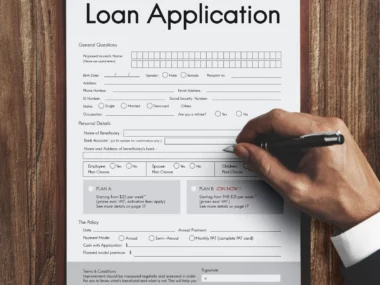Table of Contents
Introduction
When it comes to one of the biggest financial decisions in your life, finding the lowest mortgage rate can make a significant difference in your overall costs and long-term financial well-being. In this comprehensive guide, we’ll take you through everything you need to know about securing a favourable mortgage rate.
Factors Influencing Mortgage Rates
Understanding the factors that influence mortgage rates is crucial in your quest for the lowest rate possible. Here are the key factors to consider:
Economic Indicators and Trends
Mortgage rates are influenced by economic indicators such as inflation, employment rates, and GDP growth. Monitoring these indicators can provide insights into the direction of interest rates.
Lenders’ Competitive Strategies
Lenders compete with each other to attract borrowers, and their strategies can influence the rates they offer. Keep an eye on lenders’ advertisements and promotions to stay informed about their competitive rates.
Credit Scores and Borrower Profiles
Your credit score and borrower profile play a vital role in determining the mortgage rate you’ll be offered. Lenders assess your creditworthiness to gauge the risk of lending to you. Maintaining a good credit score and demonstrating responsible financial behavior can help you secure a lower mortgage rate.
Understanding Mortgage Rate Types
Before diving into your mortgage rate search, it’s essential to understand the different types of mortgage rates available. Here are the three main types to consider:
Fixed-rate Mortgages
With a fixed-rate mortgage, your interest rate remains unchanged throughout the loan term. This provides stability and predictability in your monthly payments, making it easier to budget for homeownership.
Adjustable-rate Mortgages (ARMs)
An adjustable-rate mortgage, on the other hand, offers an initial fixed rate for a certain period, after which the rate adjusts periodically based on market conditions. ARMs can offer lower rates initially but come with the risk of potential rate increases in the future.
Interest-only Mortgages
Interest-only mortgages allow borrowers to make monthly payments that only cover the interest portion of the loan for a specified period. This option may provide affordability in the short term but often leads to higher payments later when the principal balance comes due.
Researching Mortgage Rates
To find the lowest mortgage rate, thorough research is key. Consider these methods to assist in your search:
Utilizing Online Comparison Tools
Online tools, such as mortgage rate comparison websites, allow you to easily compare rates from various lenders. These tools provide transparency and help you identify lenders with competitive rates.
Consulting with Local Mortgage Brokers
Mortgage brokers have access to multiple lenders and can assist you in finding the best rate based on your specific financial situation. Their expertise and industry connections can be invaluable in securing a favorable mortgage rate.
Building Relationships with Multiple Lenders
By establishing relationships with multiple lenders, you increase your chances of finding the lowest mortgage rate. Contact different lenders directly to inquire about their rates and negotiate personalized offers.
Assessing Your Financial Situation
Understanding and assessing your financial situation is crucial before applying for a mortgage. Consider these factors:
Evaluating Your Credit Score and History
Obtain a copy of your credit report and check for any errors or negative marks. Take steps to improve your credit score if necessary. A higher credit score can help you qualify for better mortgage rates.
Calculating Your Debt-to-Income Ratio
Your debt-to-income ratio is a measure of your financial health. Calculate this ratio by dividing your monthly debt payments by your monthly income. Lenders prefer borrowers with a low debt-to-income ratio, as it demonstrates their ability to handle mortgage payments.
Gathering Necessary Financial Documentation
Prepare the required financial documentation, including bank statements, tax returns, pay stubs, and proof of assets. Having these documents organized and readily available will streamline the mortgage application process.
See more mortgage possibilities in this article
Preparing for the Mortgage Application Process
To ensure a smooth mortgage application process, you’ll need to take the following steps:
Organizing Your Financial Paperwork
Before applying for a mortgage, organize all your financial paperwork in a systematic manner. This will save time and make the application process more efficient.
Setting a Realistic Budget for Homeownership
Calculate your budget based on your monthly income, expenses, and future financial goals. Set a realistic budget for homeownership that includes not just the mortgage payment but also other costs such as property taxes, insurance, and maintenance.
Saving for a Down Payment
Consider saving for a down payment to improve your chances of securing a lower mortgage rate. A larger down payment signals to lenders that you are a financially stable borrower and can potentially lead to more favorable terms.
Understanding Loan-to-Value (LTV) Ratio
The Loan-to-Value (LTV) ratio is an important metric for lenders when determining mortgage rates. Here’s what you need to know:
Definition and Significance in Mortgage Rates
The LTV ratio is the percentage of the property’s value that you need to borrow. A lower LTV ratio, indicating a larger down payment, can result in a lower mortgage rate.
Strategies to Improve Your LTV Ratio
To improve your LTV ratio, aim to save for a larger down payment or explore alternative options such as private mortgage insurance (PMI) that can help you qualify for a loan with a lower LTV ratio.
Negotiating with Lenders
Negotiating with lenders can potentially help you secure a lower mortgage rate. Understand their perspective and utilize the following strategies:
Understanding the Lender’s Perspective
Lenders consider various factors when offering rates, including your creditworthiness, loan amount, and financial stability. Understanding their perspective can help you negotiate more effectively.
How to Leverage Your Financial Strength
Highlight your financial strengths, such as a high credit score, low debt-to-income ratio, or a stable employment history. By showcasing your creditworthiness, you can negotiate for more favorable mortgage terms.
Asking for Rate Lock Options
During the mortgage application process, interest rates can fluctuate. Request rate lock options to secure the quoted rate for a specific period, protecting you from potential rate increases.
Considering Mortgage Points
Mortgage points can be an option to consider when aiming for a lower mortgage rate. Understand their purpose and evaluate whether they are worthwhile for your specific situation.
Definition and Purpose of Mortgage Points
Mortgage points allow borrowers to pay upfront fees in exchange for a lower interest rate. Each point typically costs 1% of the loan amount and can result in a reduced interest rate over the life of the mortgage.
Determining if Mortgage Points are Worthwhile
Calculate the breakeven point to determine if paying mortgage points is beneficial for you. Consider factors such as how long you plan to stay in the home and whether you have sufficient funds to pay for points upfront.
Evaluating Various Offers
When comparing mortgage offers, don’t solely focus on interest rates. Consider other factors that can impact the overall cost of your mortgage:
Comparing Interest Rates and APRs
Look beyond the advertised interest rate and consider the Annual Percentage Rate (APR). The APR includes additional fees and charges, giving you a more accurate representation of the total cost of the loan.
Analyzing Closing Costs and Associated Fees
Closing costs and fees can vary significantly among lenders. Carefully review and compare these costs to ensure you are getting the best overall deal.
Considering Loan Terms and Flexibility
Evaluate the loan terms, such as the length of the loan and prepayment penalties. Opting for a shorter loan term can result in a lower interest rate but higher monthly payments. Consider your financial goals and choose the right option for you.
Seeking Expert Advice
Mortgage advisors and consultants can provide valuable guidance throughout the mortgage process. Understand their role, fees, and how they can help you find the lowest mortgage rate.
The Role of Mortgage Advisors and Consultants
Mortgage advisors can analyze your financial situation, recommend suitable loan options, and negotiate on your behalf. They act as a valuable resource, especially for first-time homebuyers.
Understanding Their Fees and Services
Be aware of the fees charged by mortgage advisors and consultants. Some may charge a flat fee or receive a commission from lenders. Make sure to clarify the terms before engaging their services.
How They Can Help Find the Lowest Mortgage Rate
Mortgage advisors have access to a wide network of lenders and can leverage this to find the lowest mortgage rate available. They can also provide personalized advice based on your unique financial situation.
Taking Advantage of Government Programs
Explore government programs that can help you secure a favorable mortgage rate. Here are a few worth considering:
FHA Loans and Their Benefits
FHA loans, backed by the Federal Housing Administration, offer low down payment requirements and more flexible credit score criteria. These loans can be an excellent option for first-time homebuyers or those with lower credit scores.
VA Loans for Veterans and Active Duty Military
VA loans, provided by the Department of Veterans Affairs, offer competitive interest rates and additional benefits for eligible veterans and active duty military personnel, including no down payment requirements and no private mortgage insurance.
Other State and Local Assistance Programs
Many states and cities offer assistance programs to support homebuyers. These programs can provide down payment assistance, lower interest rates, or even forgiveness of a portion of the mortgage loan.
Timing Your Mortgage Search
Understanding market trends and the influence of the Federal Reserve is essential in determining the right time to secure a mortgage rate.
Recognizing Market Trends
Monitor mortgage rate trends by keeping an eye on financial news and economic indicators. Rates tend to fluctuate based on market forces such as inflation and economic performance.
The Impact of the Federal Reserve
The Federal Reserve’s monetary policy decisions, including adjustments to the benchmark interest rate, can have an influence on mortgage rates. Stay informed about potential changes and their implications for borrowing costs.
Deciding the Right Time to Lock in a Rate
If you anticipate interest rates rising, consider locking in your rate. This protects you from potential rate increases during the application process. However, be cautious about locking in too early, as it may limit your ability to take advantage of future rate decreases.
Understanding the Fine Print
Before committing to a mortgage, it’s crucial to carefully read and comprehend loan disclosures.
Reading and Comprehending Loan Disclosures
Thoroughly review all loan agreements and disclosures provided by the lender. Pay close attention to the terms, conditions, and potential fees that may impact the cost of your mortgage.
Identifying Potential Red Flags or Hidden Fees
Look out for any red flags, such as prepayment penalties, interest rate adjustment terms, or hidden fees. Ask questions and seek clarification from the lender before proceeding.
Seeking Legal Advice When Necessary
If you encounter complex legal terms or challenges understanding the mortgage agreement, consult with a real estate attorney who specializes in mortgage law. Their expertise can help safeguard your interests.
Tips for Successful Negotiation
Implement these tips to negotiate effectively and increase your chances of securing a lower mortgage rate:
Cultivating Multiple Offers
Reach out to multiple lenders and mortgage brokers to obtain various offers. Use these offers as leverage to negotiate better terms and lower rates.
Highlighting Your Creditworthiness
Present a strong case to lenders by underscoring your creditworthiness, stable income, and other positive financial indicators. This enhances your negotiating power and makes you a more attractive borrower.
Negotiating Other Loan Terms in Addition to the Rate
Don’t limit negotiations to just the interest rate. Explore opportunities to negotiate other loan terms, such as closing costs, repayment options, or interest rate adjustment periods. Every little detail matters when it comes to finding the best mortgage offer.
Summary of Key Considerations
To find the lowest mortgage rate, thoroughly research all available options, understand your financial situation, and take advantage of expert guidance. Keep the following points in mind:
Recap of Important Points and Strategies
- Monitor economic indicators and lender strategies
- Understand mortgage rate types and their pros and cons
- Utilize online tools, consult with mortgage brokers, and build relationships with lenders
- Assess your creditworthiness and gather necessary financial documentation
- Prepare for the mortgage application process by organizing your paperwork and setting a realistic budget
Emphasizing the Need for Thorough Research
Thorough research is essential in finding the lowest mortgage rate. Take the time to compare offers, consider various factors, and be aware of potential costs and risks. This diligence will pay off in the long run.
Conclusion
Finding the lowest mortgage rate is a crucial step towards securing affordable homeownership. By considering the various factors that influence rates, understanding the mortgage process, and utilizing expert advice, you can make informed decisions that lead to long-term financial success. Take the necessary steps to secure a favorable mortgage rate and enjoy the benefits of responsible homeownership.






